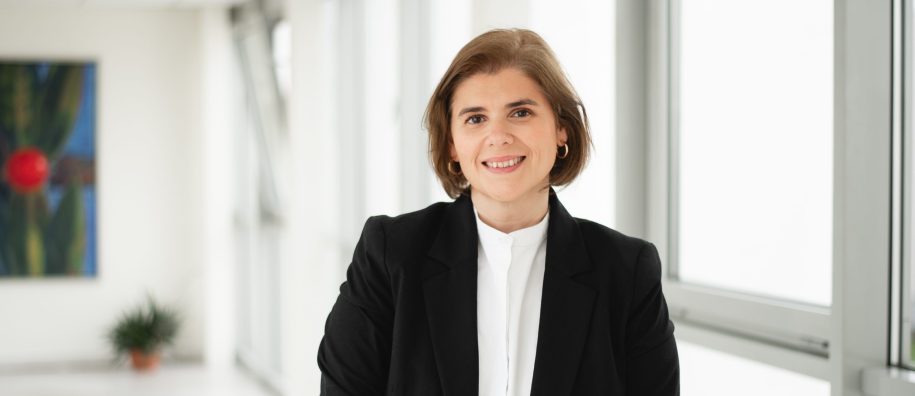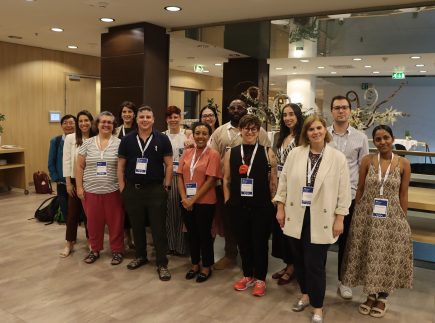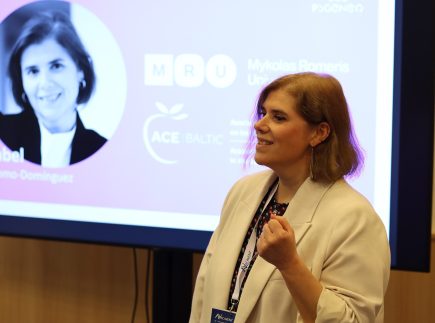
Gender equality is a complex, multilayered, and constantly evolving topic, often surrounded by persistent stereotypes. Although significant progress has been made – particularly in areas such as access to education and women’s participation in the labor market – it is still too early to say that gender equality issues have been fully resolved.
“While there have been notable achievements, they are unevenly distributed – both across countries and within them. Gender equality remains a challenge and often depends on factors such as social status, ethnicity, disability, and other circumstances,” says Dr. Isabel Palomo Dominguez, Associate Professor at the Institute of Communication at Mykolas Romeris University (MRU), who took part in the 3rd World Conference on Gender Equality (GECONF) held in Vienna from June 12 to 14.
In her reflections, Dr. I. Palomo Dominguez emphasizes that gender equality is not merely a legal or social objective – it is a broad and ever-changing field that must take into account a variety of intersecting factors.
Gender Equality Cannot Be Solved from a Single Perspective
The conference offered participants a deeper and more multifaceted view of gender inequality, exploring both emerging trends and long-standing global challenges. Presentations examined the differences across world regions and disciplines – ranging from the influence of social media influencers on gender equality in Nigeria to various initiatives aimed at creating university environments free from gender-based violence, as well as persistent stereotypes in education.
“The conference left a strong personal impression on me, especially because of the opportunity to engage with valuable new research from across the globe. The diversity of topics expanded my understanding of gender issues and introduced me to perspectives I had not previously encountered,” says Dr. I. Palomo Dominguez.
New Topics, New Challenges
Furthermore, the concept of gender equality itself is evolving and becoming more complex. Initial discussions primarily focused on ensuring equal rights for women and men – such as access to education, participation in politics, equal pay, and employment opportunities. These efforts were essential in addressing historical inequalities and discrimination faced by women in various spheres of society.
However, today it is increasingly recognized that a binary understanding of gender – man and woman – is no longer sufficient. The growing visibility of transgender, non-binary, and gender-diverse individuals reveals new forms of inequality that have long been overlooked or ignored. As a result, traditional gender equality policies are no longer adequate. We need more inclusive and responsive approaches that acknowledge and support diverse identities and lived experiences.
Every achievement in gender equality is an important step forward. Yet, each step also raises new questions and exposes previously unseen challenges. The more we recognize gender diversity, the more responsibility we have to ensure understanding and inclusion – both in policy and public discourse.
Education and Communication as Drivers of Change
Many of the conference’s discussions – from marginalization and gender-based violence to stereotypes and structural inequalities – revealed the need for a fundamental shift in how gender is understood. This transformation, according to Dr. I. Palomo Dominguez, must begin with a strong alliance between communication and education.
“These two areas have the power to reshape narratives, dismantle ingrained biases, and foster empathy and inclusion. It is encouraging to see growing attention to these fields, but the persistent presence of resistance and misinformation in many parts of the world remains concerning,” she notes.
Shared Values, Different Paths
Dr. I. Palomo Dominguez points out that while there is a shared global commitment to gender equality, the pace and stages of progress vary depending on cultural, legal, political, and economic contexts.
“In some countries, the primary focus is still on ensuring basic rights – such as access to education, protection from violence, and equal participation in public life. In these contexts, conversations about non-binary identities or inclusive language are not yet prioritized, as more urgent issues remain unresolved,” she explains.
Recognizing these differences, she argues, is essential to fostering mutual understanding and solidarity between nations. Ideally, sustained global commitment will allow every society to advance toward comprehensive gender equality – one in which every person, regardless of their gender identity, can fully realize their potential.

